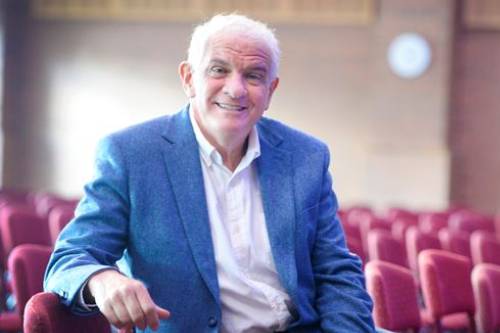
Earlier this month, a major study conducted jointly by Mission Australia and Black Dog Institute found that one in four young people in 2020 experienced mental health challenges – a significant increase since 2012 when one in five young people were facing similar concerns.
In July, a separate study involving a nationwide survey of teachers found that more than 70% saw the last 12-18 months as having a significant impact on student mental health and wellbeing.
Dr Michael Carr-Gregg, one of Australia's highest profile psychologists, says the “shadow pandemic” of worsening mental health has hit young people in four critical ways during lockdown.
“There are four key developmental tasks for young people to do in 2021 that can make a meaningful difference to their mental health, and they are having friends; obtaining and retaining friends; figuring out who they are; and emancipating from their parents,” Dr Carr-Gregg told The Educator.
Dr Carr-Gregg said that as schools prepare for their final term of the year there is particular concern about the impact the pandemic will have on students starting school in 2022.
“I’m particularly worried about the students because they haven’t been able to attend school properly, remote learning hasn’t entirely met their needs; they haven’t been able to get away from mum and dad and they haven’t been able to take those healthy risks for identity formation,” he said.
“All four of those key developmental tasks of adolescence from a psychologists point of view have been thwarted so it would not be at all surprising to see a rise in a rise in depression, anxiety, eating disorders, self-harm, and suicidal ideation, and that’s exactly what we’ve seen.”
However, Dr Carr-Gregg sees an “unrivalled opportunity” for young people to bounce back stronger than ever.
“I see this primarily as an exercise for schools and communities in resilience building, and there are five key components we can introduce into the mix that the literature says increases resilience,” he said.
“The first is to have a charismatic adult at home or at school from which young people can draw strength, make them feel safe and valued and listened to. Next year should highlight the important role of teachers as mentors and role models kids can share their thoughts and feelings with.”
Secondly, says Dr Carr-Gregg, young people must be taught social and emotional competencies.
“Never before has it been more important for young people to know things like anger management, problem-solving, decision making and conflict resolution skills,” he said.
“This is an unrivalled opportunity to acknowledge the importance of social and emotional competencies and their utility in building resilience.”
Dr Carr-Gregg said young people should also be taught about positive self-talk and the importance of the old adage: “See life as it is but focus on the good bits”.
“It’s been a tenant of positive psychology in education for a long time but now we need all schools to get on board and emphasise these important mindsets,” he said.
“We need to be mindful of building those ‘islands of competence’ – things like art, music, dance, music and sport, which all play big role in helping build resilience because they’re the mechanisms through which young people can figure out who they are and have confidence.”
Dr Carr-Gregg said another important yet understated support lies in the area of feeling connected to something and someone that transcends the material world.
“This is about feeling part of something that is bigger than yourself,” he explained.
“Given the turmoil that the world seems to be in at the moment, giving young people a sense of belonging, purpose and meaning will be a huge, and critical, challenge for schools.”
‘Messaging from leaders has never been more important’
Dr Carr-Gregg said the messages that come from school leaders will be more important than ever before in terms of principals being purveyors of hope and set the emotional tone.
“The message is that we should be alert but not alarmed, and that we need to create a positive environment in which everyone can thrive, learn and educate themselves,” he said.
“That’s the role of the principal and a lot of them are already doing some truly fantastic work in this regard.”
Dr Carr-Gregg also sees some significant opportunities to capitalise on the importance of teachers and education.
“Throughout this pandemic, all the states that have had to stay in lockdown have had an opportunity to see how incredibly important and how hard teaching really is,” he said.
“We now have an unrivalled opportunity to share the professionalism and brilliance of the education system and in particular the importance of face-to-face learning, because a lot of kids haven’t had that.”
Dr Carr-Gregg said it has been especially encouraging to see a growing number of parents and caregivers recognise the amount of preparatory work, care and resilience that goes into teaching children on a day-to-day basis.
“It’s a really tough job and we’re seeing that those who didn’t appreciate how hard teaching is certainly now do,” he said
“I hope communities will take this opportunity to strengthen school-family ties and really run with it. This has been an important and heartening silver lining to have come out of this very challenging pandemic.”


